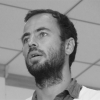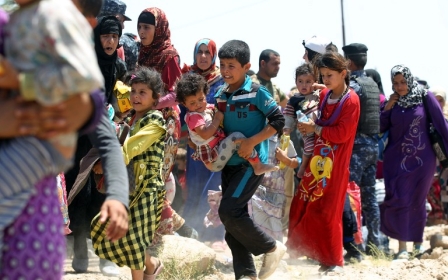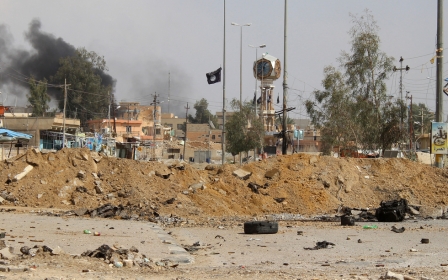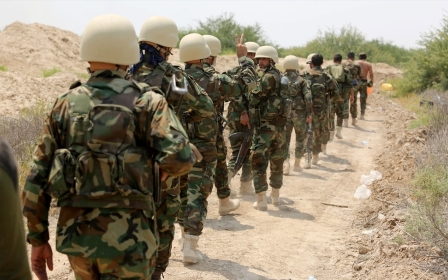Baghdad's displaced: A huge need for assistance, incredible resilience
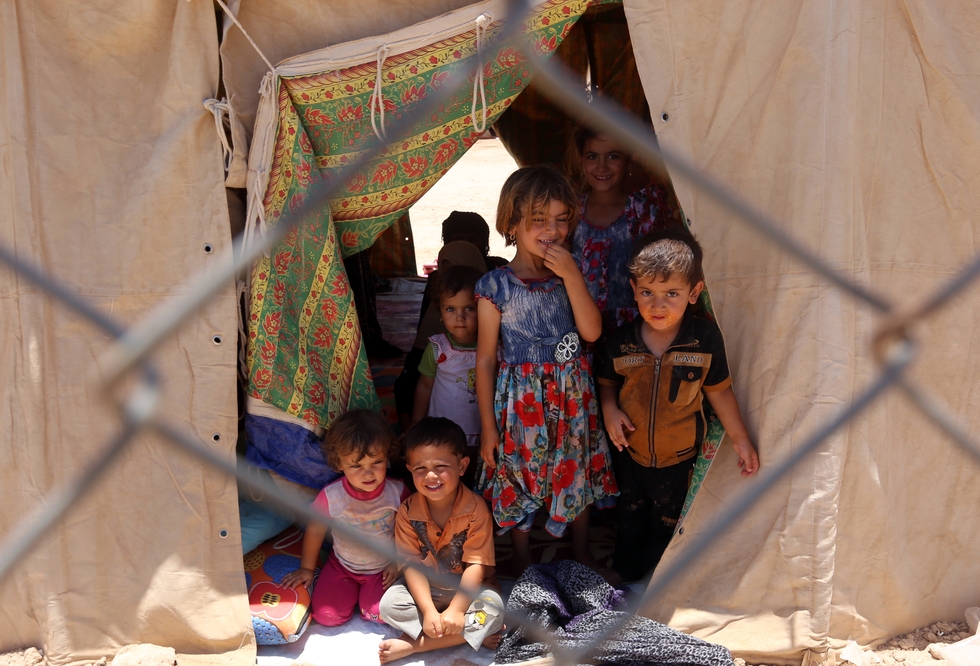
Abu Ghraib, a district in western Baghdad, has a long history of taking in displaced people. Since 2014 more than 20,000 displaced families from Anbar have sought refuge there.
MSF has been providing medical care to displaced and neglected populations in Baghdad since February 2015. This year we opened a primary health care centre in Abu Ghraib, in the western part of the city. The MSF health centre provides free outpatient and reproductive health consultations for the displaced population as well as the residents. We also run mobile clinics in hard-to-reach areas on the outskirts of Baghdad. These clinics aim to reach those people who have recently fled from fighting or who are living in areas where the fighting has prevented the delivery of essential services.
600,000 displaced people in Baghdad area
In the past year, we have provided more than 20,000 consultations between the mobile clinics and the health centre, and this is just a drop in the ocean when compared to the need for assistance in the region. There are more than 3.3 million Iraqis displaced in their own country and Baghdad alone houses more than 600,000 displaced people. These are families who were living in their towns or villages and have now lost everything. Many live in unfinished buildings, in schools, mosques or in makeshift settlements, often in very difficult and poor conditions. In Abu Ghraib in particular, we see that people suffer from limited access to water, poor sanitation facilities and overcrowded housing. These conditions are exacerbated by the impending summer with temperatures reaching up to 50 degrees.
With the poor living conditions and the limited access to healthcare, we see many preventable diseases such as respiratory and skin infections, but also patients who suffer from chronic diseases like hypertension, diabetes, and heart disease but cannot access their regular doctor or obtain their medicine. In a normal environment they would manage their conditions through the national health system, but the conflict has not only forced people out of their homes but also left many health facilities damaged or destroyed, or simply short of staff.
One of the main challenges is the lack of other organisations delivering humanitarian aid in Baghdad and the surrounding areas. Most international organisations are focused on the northern part of the country where the situation is more stable and secure. More humanitarian actors engaged across different fields, not only healthcare, are essential to meet the basic needs of the people here.
My role as field coordinator is to make sure our medical teams – doctors, nurses, pharmacists and health promoters – can treat patients with minimal barriers. This means I spend a lot of time meeting and negotiating with people from different sections of society: government authorities, security officials, and community and religious leaders. We need to make sure they understand who we are, why we are here, and what we are doing. In this context, ensuring that people understand our independence and neutrality is crucial. We treat everyone who comes to our clinics regardless of where they are from or what they believe. Of course, I don’t do this alone - our team in Baghdad is over 50 people, and many of them are also working behind the scenes to make sure the medical teams can spend as much time as possible with the patients.
There is an incredible amount of resilience
Baghdad is acutely affected by the conflict. Bombings and shootings are a daily occurrence, and somehow, after so long the people here have become desensitised to the violence. Yet on the other hand, despite the tragedy that surrounds you, people retain a belief in the city and hold onto their hopes for the future. There is an incredible amount of resilience here.
It’s difficult to imagine the thousands, if not millions, of tragic but also inspiring stories that people could tell you. Many of our staff are themselves displaced from their homes and I often wish I could take the time to listen first hand to the many stories that exist. As Ramadan is under way I hope to have the chance to join some of my colleagues and pause to enjoy a moment of peace and happiness.
- Robert Onus is the project coordinator for MSF in Baghdad. He has worked for MSF as a Project Coordinator and Logistician. He has supported projects in Iraq, Syria, Liberia, Sierra Leone and Papua New Guinea.
The views expressed in this article belong to the author and do not necessarily reflect the editorial policy of Middle East Eye.
Photo: Iraqi children, whose families fled the ongoing fighting between government forces and Islamic State (IS) militant group in the Fallujah area, gather inside a tent at a camp for displaced people in Amriyat al-Fallujah on 14 June, 2016 (AFP).
New MEE newsletter: Jerusalem Dispatch
Sign up to get the latest insights and analysis on Israel-Palestine, alongside Turkey Unpacked and other MEE newsletters
Middle East Eye delivers independent and unrivalled coverage and analysis of the Middle East, North Africa and beyond. To learn more about republishing this content and the associated fees, please fill out this form. More about MEE can be found here.


